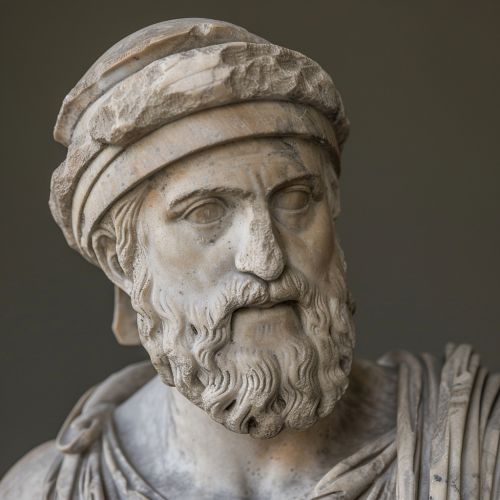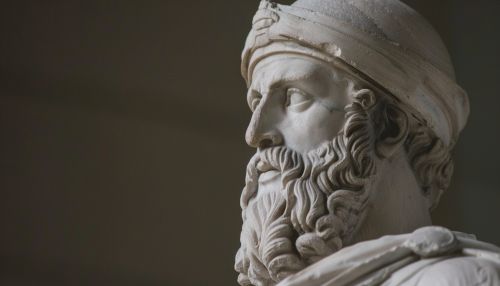Solon
Early Life
Solon was born in Athens, Greece, around 630 BC. He was a member of the noble family of the Medontidae, although his immediate family was not wealthy. His father was Execestides. Solon's lineage traced back to Codrus, the last King of Athens, which gave him a significant status in Athenian society Read more about Athenian society.
Political Career
Solon's political career began when he was appointed archon, or chief magistrate, in 594 BC. His appointment came at a time when Athens was facing severe social and economic problems. The city was deeply divided between the rich and the poor, with the latter group being heavily in debt to the former. Solon was given the task of reforming the constitution and laws to alleviate these issues.
Solon's Reforms
Solon's reforms, known as the Seisachtheia, or "shaking off of burdens," were revolutionary for their time. He cancelled all outstanding debts, forbade the use of personal freedom as collateral, and freed those who had become slaves due to their debts. Solon also reorganized the political structure of Athens, dividing the population into four classes based on wealth rather than birth. This allowed the lower classes to participate in the government for the first time.
Solon also established a new Council of Four Hundred, which was responsible for proposing laws to the Assembly. He also introduced the concept of appeal, allowing citizens to appeal the decisions of magistrates to a popular jury. These reforms laid the foundation for the later development of Athenian democracy Read more about Athenian democracy.
Later Life and Legacy
After implementing his reforms, Solon chose to leave Athens for a decade, hoping that his absence would allow his laws to take root. He travelled widely, visiting Egypt, Cyprus, and possibly Lydia and Sardis. Upon his return to Athens, he found that his laws had been largely upheld, although there were some who sought to undermine them.
Solon's legacy is significant. His reforms laid the groundwork for the later development of Athenian democracy and his laws remained in effect for centuries. He is often considered one of the Seven Wise Men of Greece, and his poetry and political wisdom were highly regarded by later generations.


